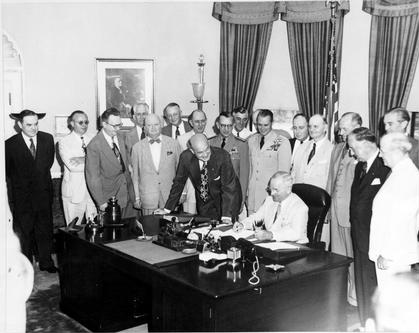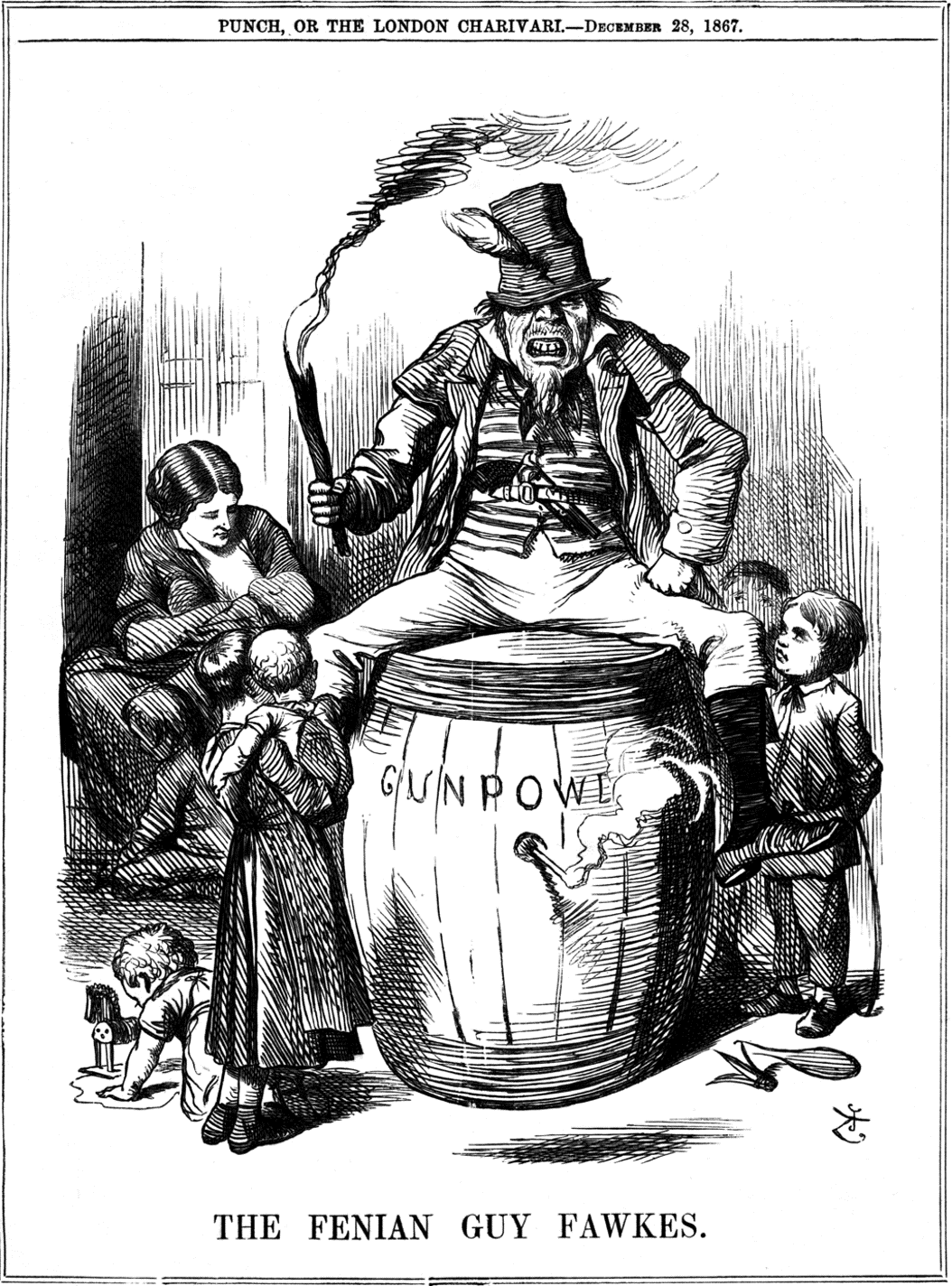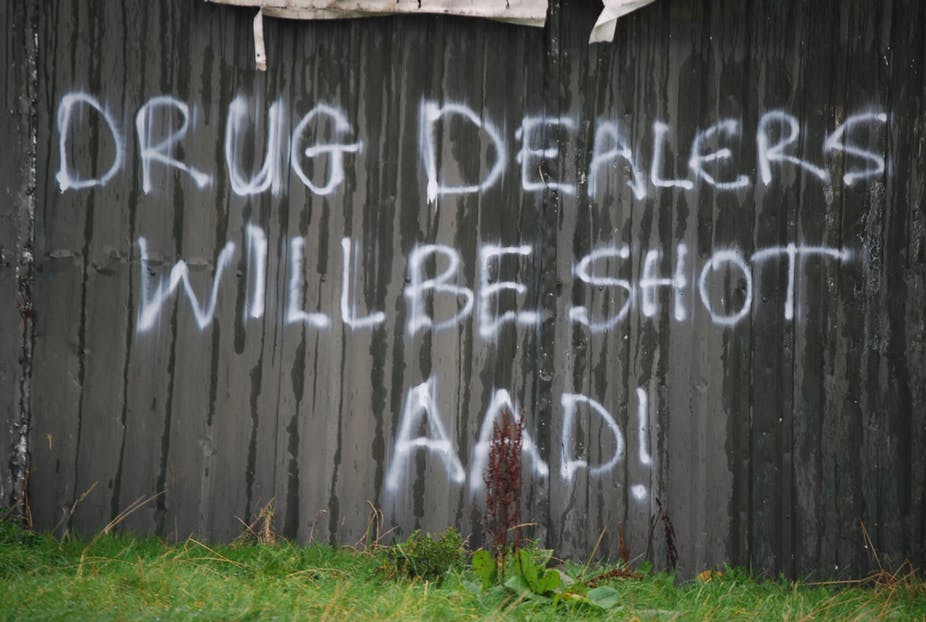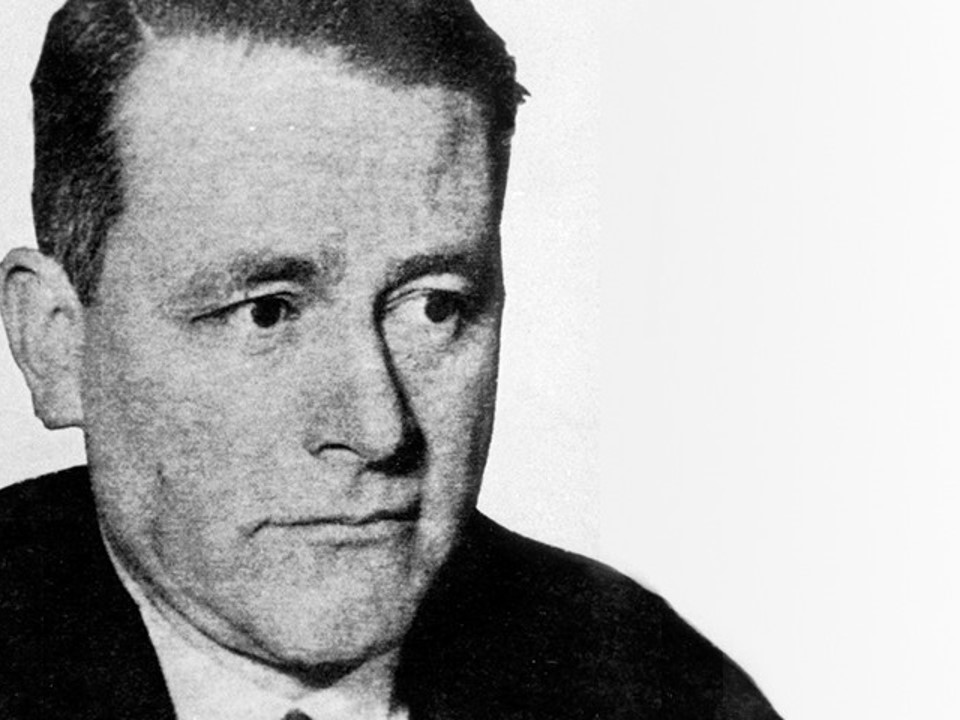class: center, middle, inverse, title-slide # Dirty Wars ## Lecture 6: Treason, Political Community and Political Enemies ### Jack McDonald ### 2019-10-31 --- class: inverse # Theory Discussion Question .question[ What, if anything, do you owe to your fellow citizens that you don’t owe to people from another country? ] ??? --- # Outline .pull-left[ The key shared feature of dirty wars are that one or more sides deem others not worthy of prima-facie standing or status for political or practical reasons. ] .pull-right[ - Defending Political Order and Political Community - Rebellion and Political Enmity - Inherent Practical Dilemmas ] --- class: inverse # Part 1: Defending Political Order and Political Community ??? --- # Imperial Defence to National Security .left-column[   ] .right-column[ .medium[ > The British Empire is pre-eminently a great naval, Indian and Colonial Power. There are, nevertheless, no means for co-ordinating defence problems, or for dealing with them as a whole... Lord Esher, _The Esher Report_ > We know roughly what people have in mind if they complain that their government is neglecting national security or demanding excessive sacrifices for the sake of enhancing it. Usually those who raise the cry for a policy oriented exclusively toward this interest are afraid their country underestimates the external dangers facing it or is being diverted into idealistic channels unmindful of these danger. Arnold Wolfers, _"National Security" as an Ambiguous Symbol_ ] ] ??? Wolfers quote p.483 --- # Order in Context: Ireland and Northern Ireland .left-column[   ] .right-column[ - Irish Rebellion of 1798 - Effectively a civil war, with atrocities (over 10k dead) followed by guerrilla campaign until 1803 - Acts of Union 1800 removes what’s left of Ireland’s independence - Failed Rebellions - Young Irelander rebellion (1848) quashed by (new) police, 2 dead - Fenian Rising (1867) 12 people killed, then most went home - Fenian Dynamite Campaign, 1881-1885 - Special Irish Branch formed 1883 to combat campaign - Easter Rising 1916 - Lasts 5 days, put down by military and police - Irish War of Independence 1919-1921 - IRA makes a point of targeting RIC/state infrastructure. Black and Tans (temporary constables) and Auxiliaries (RIC paramilitaries made up of ex soldiers) infamous for use of force ] ??? Protestant landholders in north east, catholic peasants 1700s Irish Nationalism Potato Famine in 19th C Early 19th C Catholic Emancipation Home Rule debate --- # Ordering Activities .pull-left[ .medium[ > Extremists of all kinds use malevolent narratives to justify behaviour that contradicts and undermines the values that are the foundation of our society. If left unchallenged, these narratives fragment and divide our communities. We protect the values of our society – the rule of law, individual liberty, democracy, mutual respect, tolerance and understanding of different faiths and beliefs – by tackling extremism in all its forms. HMG, _CONTEST_ ] ] .pull-right[ .medium[ > It is up to us to organize the people. As for the reactionaries in China, it is up to us to organize the people to overthrow them. Everything reactionary is the same; if you don't hit it, it won't fall. It is like sweeping the floor; where the broom does not reach, the dust never vanishes of itself. Mao Tse-Tung, _The Situation and Our Policy After the Victory in the War of Resistance Against Japan_ ] ] ??? --- # Ordering Violence in Context: DR Congo > The Second Congo War heralded a profound militarization of the Congo’s political settlement. Power was largely exercised through multi-layered political-military networks that regrouped government and rebel actors from countries in the region and domestic political-military movements striving to take control over the country. -- > These actors were in turn linked to myriad small-scale militias resisting or allying with these external and national security forces, while also fighting for more localized spheres of influence and agendas, often linked to conflicts around identity, territory and local authority. Judith Verweijen, _Stable Instability_ ??? Verweijen quote p.21 https://www.refworld.org/pdfid/57e92e4d4.pdf --- # Ordering Institutions and Organisations .pull-left[  ] .pull-right[  ] ??? --- # Institutions In Context: GWOT > Just as FBI bureaucrats were instrumental in nurturing anticommunism during the early Cold War, they also helped to discredit the KKK and other "hate groups" during the 1960s. -- > FBI bureaucrats acted as guardians of the nation, neutralizing and destroying the new enemy. By the late 1960s, KKK (as well as Black Nationalist) extremists would eclipse Communist subversives in national security discourse. -- > At this point, the FBI was disrupting and neutralizing non-violent Communist, socialist, civil rights, Black nationalist, and antiwar organizations on the one hand, as well as violent Klan, Nazi organizations on the other. John Drabble, _To Ensure Domestic Tranquility_ ??? Drabble quote p.327-8 --- class: inverse # Small Group Discussion .question[ Is revoking the citizenship of suspected terrorists an act of cowardice? ] ??? --- class: inverse # Part 2: Rebellion and Political Enmity ??? --- # Citizenship and Treason .left-column[   ] -- .right-column[ .medium[ > There is a time when the operation of the machine becomes so odious, makes you so sick at heart, that you can't take part. You can't even passively take part! And you've got to put your bodies upon the gears and upon the wheels, upon the levers, upon all the apparatus, and you've got to make it stop! And you've got to indicate to the people who run it, to the people who own it — that unless you're free, the machine will be prevented from working at all! Mario Savio - Social movements - Terrorism - Insurgency - Coups ] ] ??? --- # Political Enmity .pull-left[  ] .pull-right[ .medium[ > In comparison with a war of absolute enmity, the contained war of classical European international law, proceeding by recognized rules, is little more than a duel between cavaliers seeking satisfaction. To a communist like Lenin, imbued with absolute enmity, such a war could only appear to be a mere game, a game that he would play in order to mislead the enemy, but one which he basically despised and thought risible. Carl Schmitt, _Theory of the Partisan_ ] ] ??? --- # Rebellion, Revolution, and Uncontained War .pull-left[ .small[ > When they poured across the border > I was cautioned to surrender, > this I could not do; > I took my gun and vanished. Leonard Cohen, _The Partisan_ > The modern partisan expects neither justice nor mercy from his enemy. He has turned away from the conventional enmity of the contained war and given himself up to an other — the real — enmity that rises through terror and counter-terror, up to annihilation. Carl Schmitt, _Theory of the Partisan_ ] ] .pull-right[ .medium[ > The relevant distinction at work in terms of force and politics... is that between battle and repression: is the violence in question warfare, with organized, reciprocal fighting, or is it the everyday operations of the security apparatus in surveilling and enforcing order?The ambit is not between war and a beatific state of peace, but between armed resistance and the reign of punitive expeditions, police, spies and death squads. Tarak Barkawi, _Decolonizing War_ ] ] ??? --- # Uncontained War in Context: Vietnam .medium[ > The essential contradiction in our society at that time was the contradiction between, on the one side, our nation, our people, and on the other, the French imperialists and their henchmen, the reactionary feudalists. We accordingly put forth the slogan "To exterminate the reactionary colonialists and the traitors." As a result, as early as the first years of the Resistance War, a number of the most reactionary of the landlord class were repressed in the course of the operations against local puppet administration and traitors. Võ Nguyên Giáp, _People's War, People's Army_ ] -- .medium[ > Salan took the Algerian partisan for the absolute enemy. But all at once, a far worse enemy turned up on his back: his own government... Carl Schmitt, _Theory of the Partisan_ ] ??? --- # Political Enmity in Context: Argentina .medium[ > As formulated by Raul Alfonsin before he became president in 1983, the question is why Argentina, a rich and democratic nation in the 1920s, reverted to a process that moved it toward underdevelopment, authoritarianism, and violence... ] -- .medium[ > Understanding the social question in Argentina is basic to understanding both the guerillas' response and the generals' dirty war... ] -- .medium[ > When symptoms are of major concern, the social question takes the form of the subversion problem. But underlying the subversion problem lies the redistribution problem, and behind it, the property question... ] -- .medium[ > Instead of a final solution to the social question, the armed forces attempted a final solution to the subversion problem. Donald C. Hodges, _Argentina's "Dirty War"_ ] ??? --- class: inverse # Small Group Discussion .pull-left[ So far we have covered explanations for rule-breaking that are explained by political structures/relations as well as political ideas. A practical dilemma is something largely independent of ideas. For example, to succeed in any adversarial situation, the fact that an opponent has free will/agency is likely to give rise to a set of practical dilemmas. ] .pull-right[ .large[ Are there any practical dilemmas common to all insurgencies, or to all state forces that seek to defeat insurgencies? Do states and insurgents share any practical dilemmas? ] ] ??? --- class: inverse # Part 3: Inherent Practical Dilemmas ??? --- # The Dilemmas of Control > The primary aim of the strategist in the conduct of war is some selected degree of control of the enemy for the strategist's own purpose; -- > this is achieved by control of the pattern of war; and this control of the pattern of war is had by manipulation of the center of gravity of war to the advantage of the strategist and the disadvantage of the opponent. John C. Wylie, _Military Strategy_ -- > ...the control sought in war should be neither so extreme as to amount to extermination - this is probably a cultural value judgment of the writer, and might not be valid in the eyes of one from a less humane culture - nor should it be so tenuous as to foster the continued behavior of the enemy as a hazard to the victor... ??? --- # The Dilemmas of Insurgency .pull-left[ > A point often missed is that _Small Wars_ is not simply a book about warfare against 'savages'. Partisan warfare in 'civilised' countries is also included. Daniel Whittingham, _'Savage warfare': C.E. Callwell, the roots of counter-insurgency, and the nineteenth century context_ ] .pull-right[ Survival and escalation Population control Identity & Identification One-sided violence ] ??? --- # The Leaders' Dilemmas .pull-left[ .medium[ > Most people in any culture, therefore, will take for granted a particular course of action or consider only a few alternatives. That they choose from a restricted set will, for most of them, remain below the threshold of consciousness, because they seldom encounter individuals who take for granted quite different assumptions. David J. Elkins and Richard E. B. Simeon, _A Cause in Search of Its Effect, or What Does Political Culture Explain?_ ] ] .pull-right[ Political survival in a given political culture Coordination problems Capability issues ] ??? --- # The Institutional Dilemmas (Organisations) > Indeed, the case of COINTELPRO-New Left shows that endogenous organizational processes within state agencies are key to understanding the level of repression received by particular protest groups. Rather than directly resulting from these groups' size, level of activity, or predilection for violence, the patterning of repression by the FBI was bound by the flow of information within the bureau and the consequent ability for SMOs to become visible at the national level of the FBI. David Cunningham, _The Patterning of Repression_ ??? Cunningham quote p.234